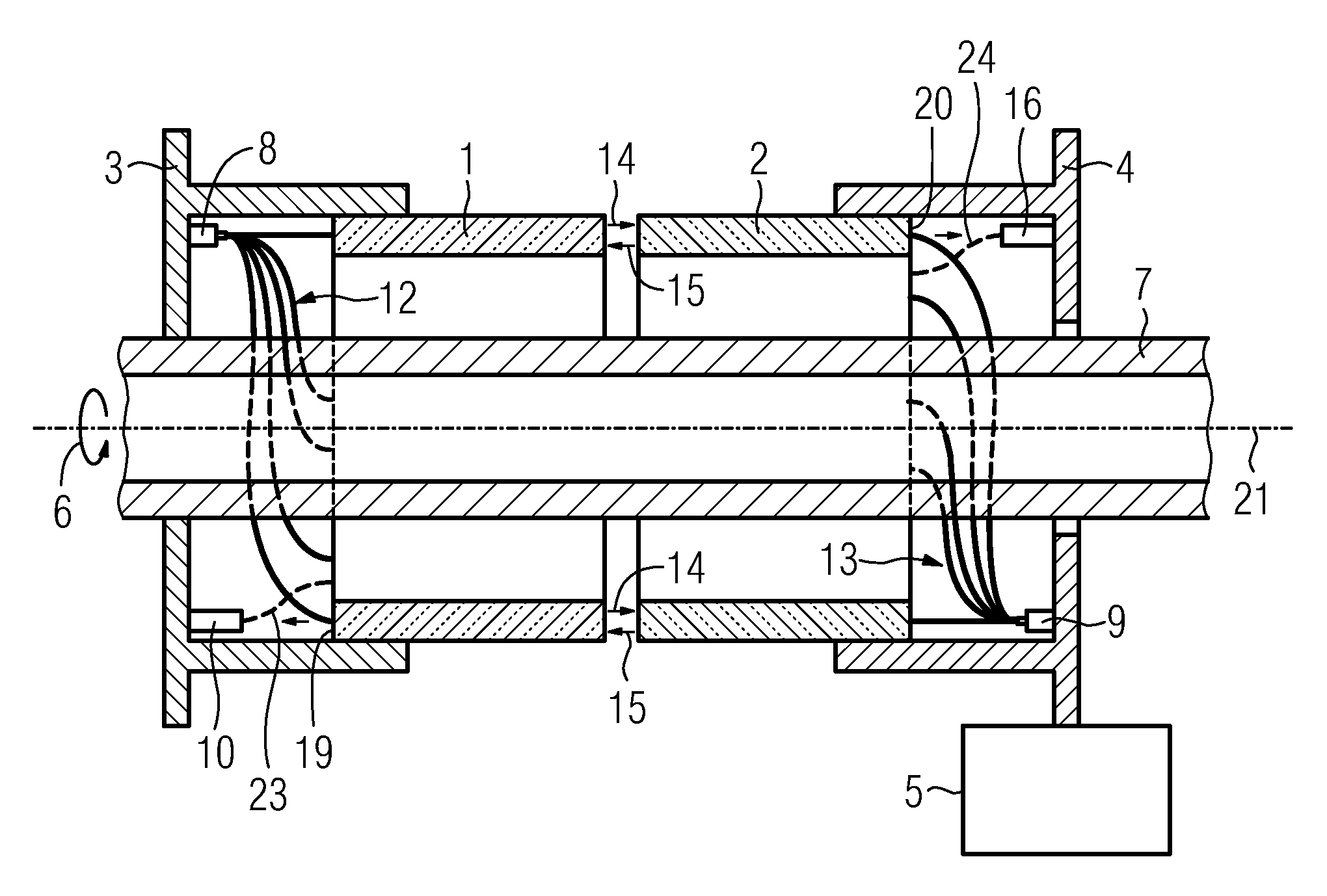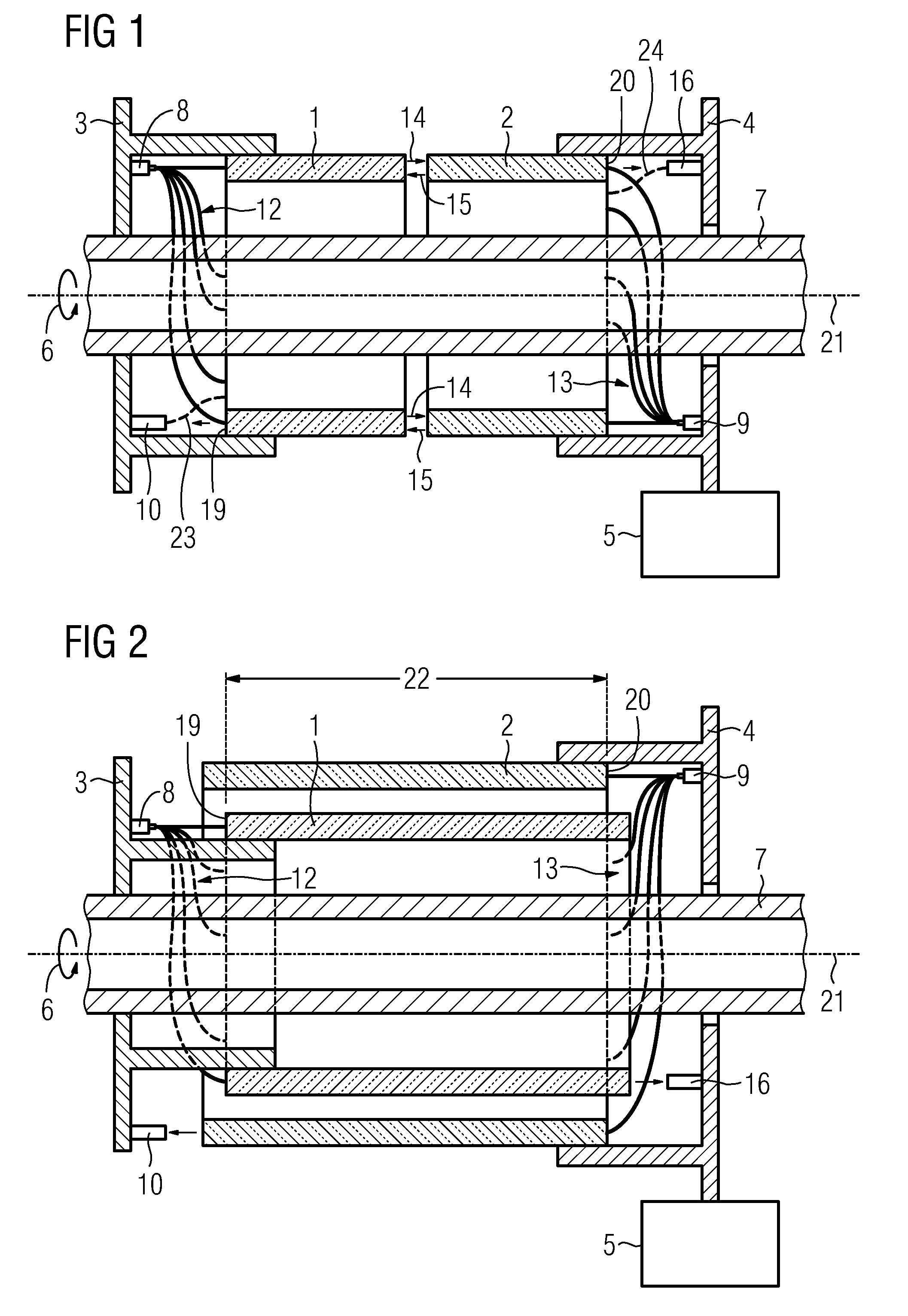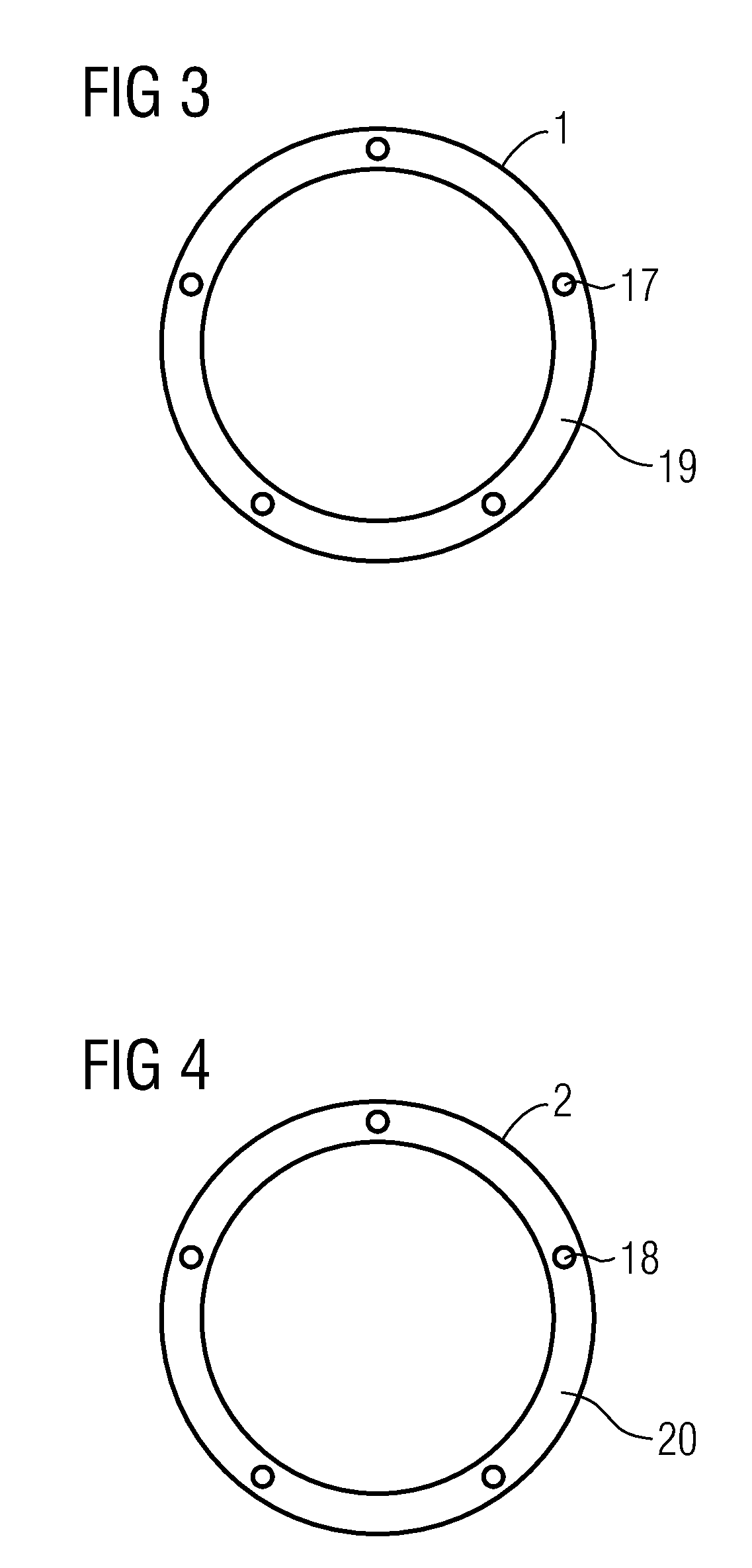Rotary joint
a rotary joint and rotary technology, applied in the field of rotary joints, can solve the problems of data only being transmitted, unsuitable for transmitting signals, optical rotary joints embodied in a standard commercially available configuration, etc., and achieve the effect of high transmission reliability and high level of transmission reliability
- Summary
- Abstract
- Description
- Claims
- Application Information
AI Technical Summary
Benefits of technology
Problems solved by technology
Method used
Image
Examples
Embodiment Construction
[0027]FIG. 1 shows a first embodiment of the rotary joint in the form of a schematic representation. In this case the rotary joint has a first housing part 3 which is fixedly connected to a rotating (see arrow 6) hollow shaft 7. The hollow shaft 7 can therein be present e.g. in the form of a motor shaft. As a result of the fixed connection of the first housing part 3 to the hollow shaft 7 the first housing part 3 co-rotates with the hollow shaft 7. In addition the rotary joint has a second stationary housing part 4 which is fixedly connected to a machine bed 5, e.g. a machine tool. The rotary joint also has a first light-conducting hollow body 1 and a second light-conducting hollow body 2. Within the scope of the exemplary embodiment the two hollow bodies are embodied as light-transmitting tubes, made e.g. of glass or Plexiglas. The first hollow body 1 is fixedly connected to the first housing part 3 and the second hollow body 2 is fixedly connected to the second housing part 4. In ...
PUM
 Login to View More
Login to View More Abstract
Description
Claims
Application Information
 Login to View More
Login to View More - R&D
- Intellectual Property
- Life Sciences
- Materials
- Tech Scout
- Unparalleled Data Quality
- Higher Quality Content
- 60% Fewer Hallucinations
Browse by: Latest US Patents, China's latest patents, Technical Efficacy Thesaurus, Application Domain, Technology Topic, Popular Technical Reports.
© 2025 PatSnap. All rights reserved.Legal|Privacy policy|Modern Slavery Act Transparency Statement|Sitemap|About US| Contact US: help@patsnap.com



